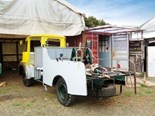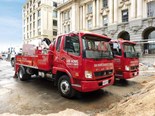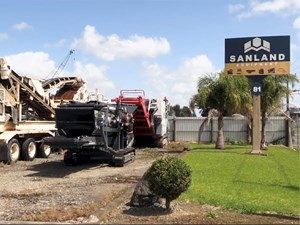Special feature: The Queensland Transport Museum
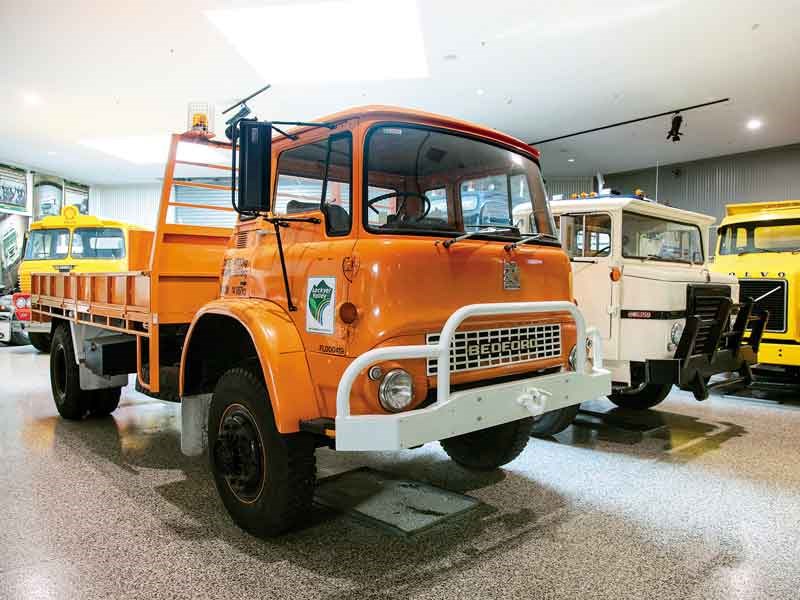 TK 4X4 Bedford
TK 4X4 Bedford

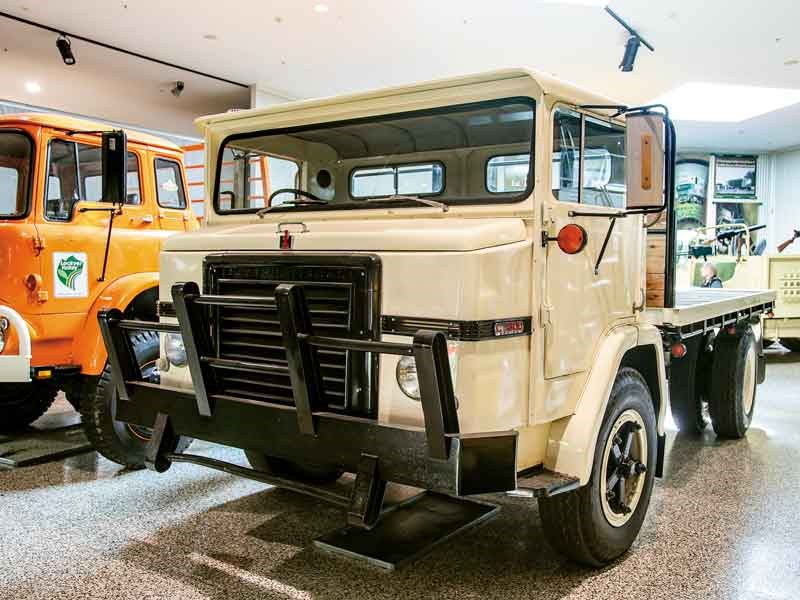 International AACO 4x2
International AACO 4x2

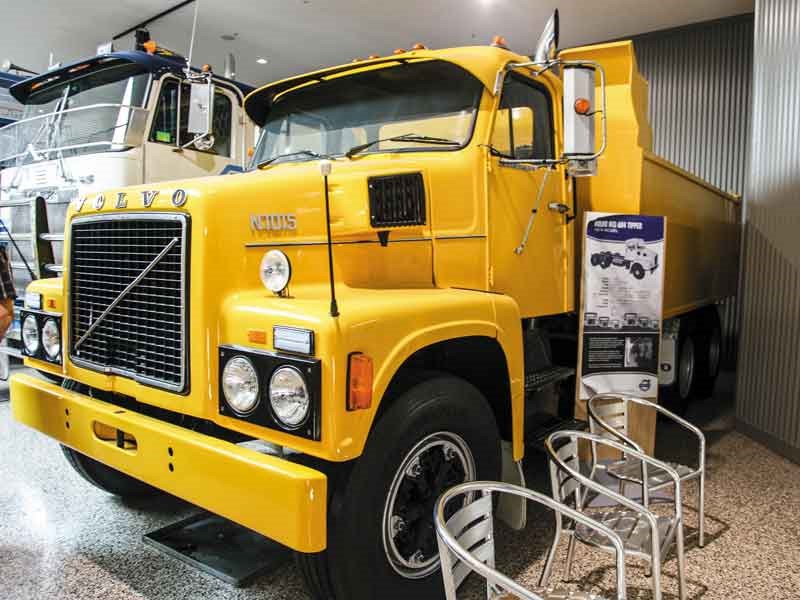 1974 N1015 Volvo 6x4 tipper
1974 N1015 Volvo 6x4 tipper

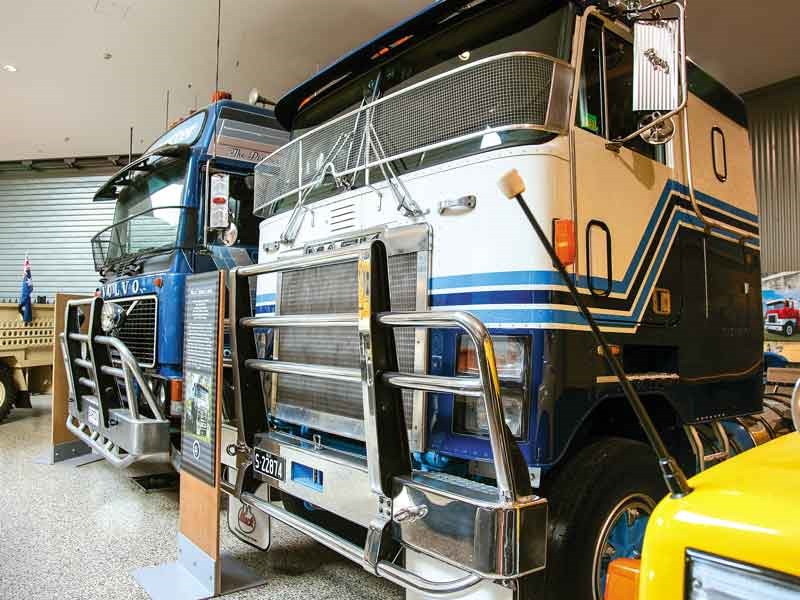 1985 Volvo Globetrotter (left) and 1981 Mack Cruise liner
1985 Volvo Globetrotter (left) and 1981 Mack Cruise liner

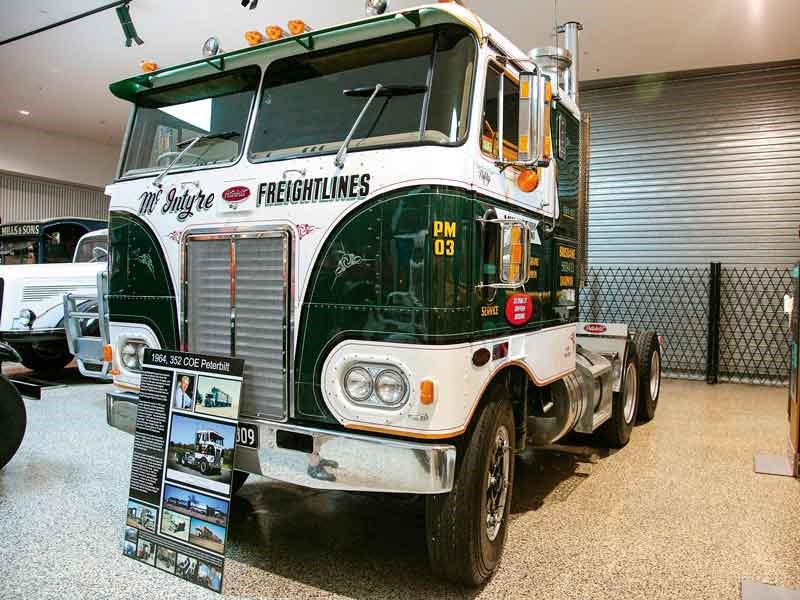 A rare model belonging to McIntyre Freight Lines—a 1964 352 COE Peterbilt
A rare model belonging to McIntyre Freight Lines—a 1964 352 COE Peterbilt


|
|
TK 4X4 Bedford
|

|
|
International AACO 4x2
|

|
|
1974 N1015 Volvo 6x4 tipper
|

|
|
1985 Volvo Globetrotter (left) and 1981 Mack Cruise liner
|

|
|
A rare model belonging to McIntyre Freight Lines—a 1964 352 COE Peterbilt
|
A trip to Brisbane wouldn’t have been complete without a visit to the Queensland Transport Museum
The Queensland Transport Museum is in the Lockyer Valley Cultural Centre located in Gatton, an hour’s drive west of Brisbane. The current exhibition contains 90 years of road transport history and is well worth checking out.
It’s also a good place to linger and get the feel of the Lockyer Valley, renowned for its horticulture (it’s known as Queensland’s salad bowl) and relaxed, rural lifestyle.
I’d forgotten how much I liked Australia. The good vibe begins with the cheery volunteer at immigration who greets us with a hearty smile and a teasing nod to my 1.8-metre son about how we must have raised him in compost, to another friendly volunteer at the Transport Museum who as soon as we open our mouths recognises that we are from ‘across the dutch.’
The museum is crammed full of well-restored trucks—24 in total plus informative videos and 200 display models.
Frontier trucking history
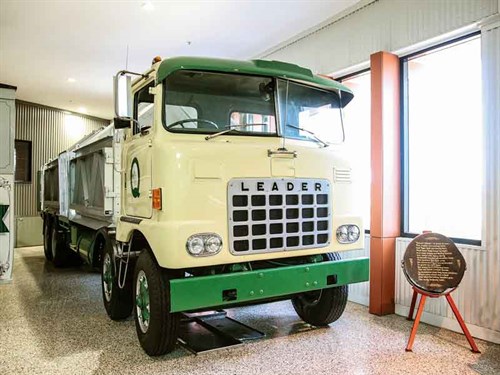
One of the main displays is dedicated to the history of Western Transport, which was one of Australia’s largest transport companies. It experienced its heyday through the 1950s to 1970s before being sold to Bells Brothers in Western Australia in 1972.
Cyril Anderson kick-started his trucking empire with a two-tonne Studebaker truck in 1934, running grocery supplies from Gatton to Brisbane. It soon grew into a general carrying business. During WWII, Cyril’s brother Curly ran the business, and in 1950, they acquired rival company, Maranoa Transport, and became Western Maranoa Transport.
Ten years later, they had 500 trucks and depots in all mainland capitals and 53 Queensland towns and had become one of Australia’s largest road haulage companies. Western Oilfields Trucking forged a path throughout Australia to open up oil and gas fields.
Cyril also started a truck manufacturing company, Leader Trucks, and from 1972 to 1984, nearly 2000 four- to 250-tonne trucks were built for the heavy transport market.
Notable firsts for Leader were: the first manufacturer to fit Caterpillar engines to trucks, to fit automatic transmissions to diesel trucks, and to offer disc brakes.
The trucks that got the job done
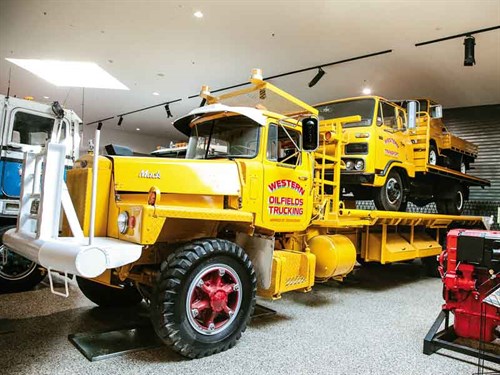
Western Transport operated 14 Leyland Comets in Prime Mover and flat top configurations. These trucks proved extremely reliable and were used to haul general freight to and from South Western Queensland.
Leyland 14 was purchased by Western Transport in 1953 and was coupled to a single axle trailer that when loaded carried 12 tonnes of freight. These trucks were a common sight around the Lockyer valley and were joined in the fleet by a range of other British tucks, including Scammell, Dennis, Bedford, and Austin. Eventually, American Macks that had a greater tolerance to heat and the rough outback conditions replaced the British trucks.
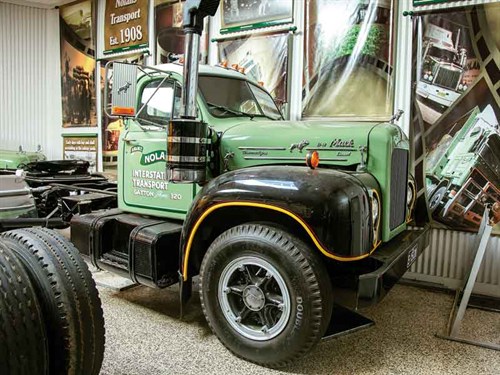
Generally coupled to either single axle or tandem trailers, they were often used to bring four tiers in height of wool from Western properties. Western Transport owned and operated hundreds of B-model Macks through the 1950s and ’60s before graduating to the famous R Series, famously known in Australia as ‘The Flintstone.’
The Macks were thought to be the best money could buy and were a status symbol for the drivers who operated them. Western Oilfields Trucking and Western Heavy Haulage carried equipment to open up the Jackson oil and gas fields in Western Australia as well as at Karumba and Innamincka. Power station turbines and equipment were transported to Gladstone and to Callide power stations from Brisbane and the Gladstone wharf.
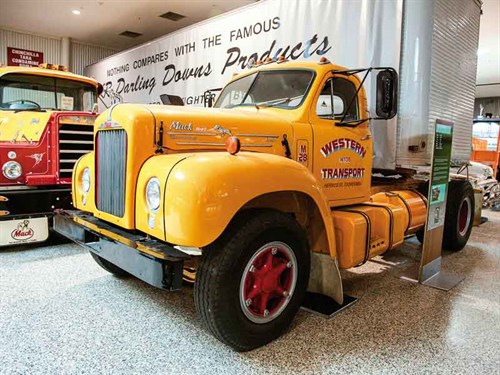
During the wool boom, Maranaoa Transport carried a great amount of wool from Dalby, St George, and other wool producing areas. Maranoa drivers had to contend with black soil tracks, which, if wet, could take a week to cover a distance normally covered in a day.
Back then, sealed roads were few and far between and drivers faced challenges every day that most modern transport operations cannot even contemplate. Stories are told of drivers having to camp beside a bogged truck for days while digging the truck out with jacks and shovels. All this on top of having to load and unload the vehicle by hand!
Other museum highlights
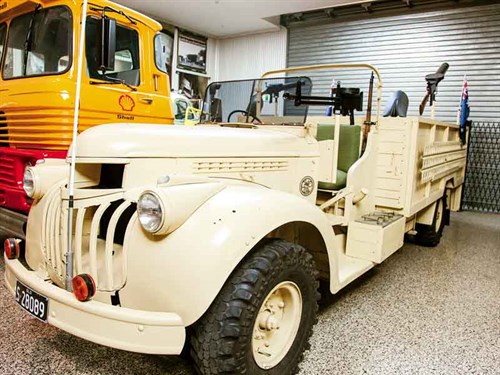
A cream Chevrolet a 1942 Desert Raider—one of the only 200 built and one of two left in the world—was used in WWII in the desert in North Africa and had an interesting New Zealand connection. The truck was the vehicle for the Long Range Desert Group (LRDG), a reconnaissance and raiding group of the British army.
We were chuffed to read that it was thought that New Zealand farmers, who were part of the second division, possessed the attributes needed for such an operation since they needed men who were ‘energetic, innovative, physically and mentally tough to be able to live in seclusion in the Libyan Desert’.
It was interesting to note the New Zealand armed patrol had a green Tiki with a red tongue painted on the right side of the bonnet and a Maori place name beginning with ‘R’ on the left.
The LRDG vehicles were the lighter two-wheel drive ones pared down to the basics and fitted with a bigger radiator. Metal mats (not hanging on the sides of the truck) were apparently used for helping get the truck out of soft terrain when stuck.
Nolan Interstate Transport
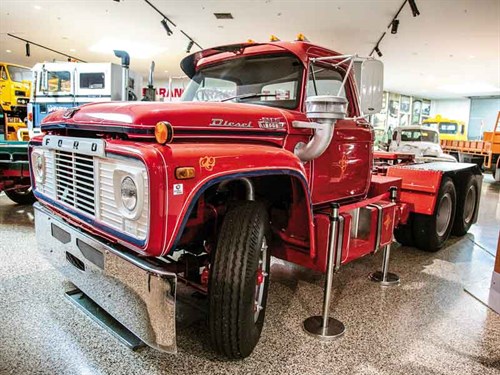
The Toowoomba-based trucking business, started in 1908, is still going strong today and is the largest family-owned and operated transport business in Queensland.
All trucks are on loan from their owners and from time to time. The museum rotates exhibitions in this area, so check before visiting to see what’s on.
More info
- The Queensland Transport Museum operates Monday to Friday from 9am to 5pm, and Saturday and Sunday from 9am to 4.30pm
- From Brisbane, travel 90km and take the Gatton exit off Highway A2
For more details, visit lockyervalleyculturalcentre.com.au.
Thanks to the Queensland Transport Museum for the above information.
Read more truck features on Deals on Wheels
Keep up to date in the industry by signing up to Deals on Wheels' free newsletter or liking us on Facebook.




.jpg)


.jpg)



